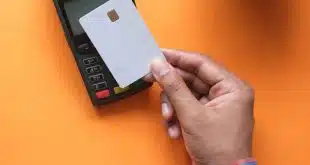By Jim Daly
Tests of alternative payments and smart-phone apps are in the cards for the U.S. Treasury Department’s Bureau of the Fiscal Service. The Bureau has excised more than 90% of the paper from its payments processes but still must traverse a difficult “last mile” to become a nearly entirely electronic system, according to a senior Treasury official.
Programs handled by the Bureau include Social Security and other recurring payments, federal tax refunds, and numerous other government payments. Only a fraction of Social Security payments still go out as checks. Most that aren’t paid by direct deposit go into consumer accounts backing Treasury’s Direct Express prepaid MasterCard card issued by Dallas-based Comerica Bank.
The Bureau handles 1.2 billion payments annually worth $3 trillion, according to John Hill, assistant commissioner of payment management and chief disbursing officer in the Fiscal Service Bureau. Hill spoke in New Orleans Wednesday at the annual payments conference of Herndon, Va.-based NACHA, governing body of the automated clearing house network.
Treasury’s check volume peaked in 1975 when the department issued 718 million checks, according to Hill. Electronic payments began a year later. This year, the department will issue 50 million checks, a reduction of 93%.
Now the bureau is focusing on persuading more federal departments to turn their payments operations over to it—some $1 trillion in annual payments remain outside its reach—and to find ways to make small, one-time payments, typically to vendors, without cutting checks. “We’re beginning to explore alternative payment methods for that last mile of delivering payment,” said Hill.
The first steps of that last mile involve a test of PayPal Inc.’s system for a small office within the U.S. Department of Justice, Hill said at the conference. PayPal might be joined later by other alternatives in tests involving more federal agencies. In addition to PayPal, those alternatives could include Square Cash, Dwolla, and Fiserv Inc.’s Popmoney, according to Hill, who didn’t reveal many details. But he promised: “You’re going to be hearing more about this.”
The goal is to get the share of electronic payment transactions that the Bureau, the largest originator of ACH transactions, is responsible for up to 97% from the current 95%. While that doesn’t seem like a big leap, Hill said the job will be a challenge because the easy conversions are done. The Bureau’s average cost per transaction is 20 cents, down from about 30 cents five or six years ago. But after decades of decline, the average stopped dropping about two years ago.
Besides trying to add volume from the remaining federal agencies that currently don’t use its services, particularly the Defense Department, and exploring the alternative systems, the Bureau also is looking to cut costs in a number of ways. A Direct Express call center, for example, typically gets 2.5 million calls on Social Security payment dates, far more than any other time of the month, Hill said. About 70% of those calls come from frequent callers. “Before Direct Express, there were no such calls,” Hill said. “Because we’ve become electronic, the expectation for service has changed.”
In an effort to deflect some of those calls, the Bureau is doing what Hill called limited tests of a mobile-phone app that gives the recipient timely balance and other account information. The app has promise because, according to Hill, 40% of Direct Express cardholders have smart phones. “It pulls traffic off a very expensive call center,” he said.
The Bureau also is in the midst of a $50 million, five-year project to modernize its processing center that handles post-payment claims, returns, and suspected fraudulent transactions. Based in Philadelphia, the center had used a 1980s computer system and relied heavily on paper-based processes, according to Hill.
While electronic payments have enabled the federal government to do away with billions of checks, its payment programs at times are controversial in Congress. In recent letters to Treasury Secretary Jacob Lew, several senators criticized Treasury’s management of the prepaid card contract with Comerica and cited an alleged lack of competitive bidding, according to the nonprofit Center for Public Integrity. Senators also have questioned no-bid contracts awarded to Bank of America Corp. and JPMorgan Chase & Co. that reportedly enable the banks to collect high fees for providing wire transfers to federal prisoners and prepaid cards to former prisoners.




